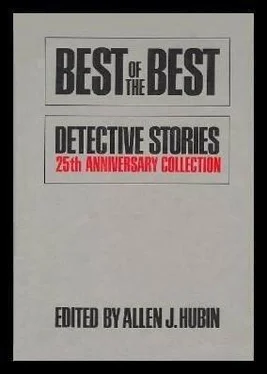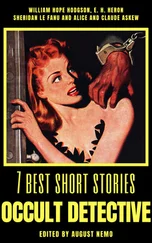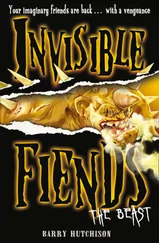Stephen Barr - Best of the best detective stories - 25th anniversary collection
Здесь есть возможность читать онлайн «Stephen Barr - Best of the best detective stories - 25th anniversary collection» весь текст электронной книги совершенно бесплатно (целиком полную версию без сокращений). В некоторых случаях можно слушать аудио, скачать через торрент в формате fb2 и присутствует краткое содержание. Город: New York, Год выпуска: 1971, ISBN: 1971, Издательство: E.P. Dutton & Co., Жанр: Детектив, на английском языке. Описание произведения, (предисловие) а так же отзывы посетителей доступны на портале библиотеки ЛибКат.
- Название:Best of the best detective stories: 25th anniversary collection
- Автор:
- Издательство:E.P. Dutton & Co.
- Жанр:
- Год:1971
- Город:New York
- ISBN:978-0-525-06450-3
- Рейтинг книги:5 / 5. Голосов: 1
-
Избранное:Добавить в избранное
- Отзывы:
-
Ваша оценка:
- 100
- 1
- 2
- 3
- 4
- 5
Best of the best detective stories: 25th anniversary collection: краткое содержание, описание и аннотация
Предлагаем к чтению аннотацию, описание, краткое содержание или предисловие (зависит от того, что написал сам автор книги «Best of the best detective stories: 25th anniversary collection»). Если вы не нашли необходимую информацию о книге — напишите в комментариях, мы постараемся отыскать её.
Best of the best detective stories: 25th anniversary collection — читать онлайн бесплатно полную книгу (весь текст) целиком
Ниже представлен текст книги, разбитый по страницам. Система сохранения места последней прочитанной страницы, позволяет с удобством читать онлайн бесплатно книгу «Best of the best detective stories: 25th anniversary collection», без необходимости каждый раз заново искать на чём Вы остановились. Поставьте закладку, и сможете в любой момент перейти на страницу, на которой закончили чтение.
Интервал:
Закладка:
“They’re a fighting breed, you know,” prattled Crouch. “That is, they hold their bite until they can land on a vital spot. They’ve rather outlived their day — there are less than a dozen in the whole country.”
They cleared the ford and at the next bend came to the cottage.
“You’ll have to drive right in, or you’ll block the lane. Not that anybody ever comes out this way.”
He found himself wishing he had not made the last remark. Then common sense steadied him. If Crouch were to set the mastiff on him, it would be murder. Crouch might get away, but the police would know that a mastiff had been used; and as there were less than a dozen in the country they would soon pick him out, and Crouch would be hanged.
“You can park at the side of the cottage — then it will be easy to back and turn.”
As Crouch stepped out of the car, the mastiff put its head through the open window. With something between a slither and a leap it landed in the garden, stretched, sniffed the air.
“Oscar had better stay in the car,” said Crouch, and opened the rear door. “Oscar — guard!”
Instead of obeying the mastiff cringed and whined.
“Why, what’s the matter, old boy?” He patted the dog and talked nonsense to it. But when he again ordered it into the car it circled round him, fawning and whimpering in canine apology for disobeying an order.
“Something’s upsetting him.” Crouch was puzzled. “Dennis, d’you mind if I touch you? I want to show him we’re friends.” Crouch put his hands on Stretton’s shoulders. “There, there! Dear Dennis! Nice Dennis!” In his preposterous pantomine of affection Crouch stood on tiptoe and went through the motions of administering a kiss.
The mastiff ignored the whole performance. Only when Crouch bellowed at him did he slink back into the car.
Crouch slammed the door — but he did not, Stretton noticed, shut the window. The dog could come if Crouch were to call him.
“Those scientific tests of the dog’s intelligence are damned unscientific!” he exclaimed. “They’re tests for elementary human intelligence. Dogs haven’t got any. Take Oscar. He only understands seven words, and he thinks all policemen are sugar-daddies, because a constable petted him when he was a puppy. All the same, they understand the devil of a lot in their own way. I believe they have a thought-pattern which we can’t analyze.”
“Afraid I’ve never had any feeling for animals,” returned Stretton, his fear subsiding. “Shall we go in?”
It was a spacious little five-roomed cottage, incongruously furnished with items from Stretton’s London flat. The front window of the parlor looked over marshland to the Thames. From the side window, when Crouch’s car was not blocking the view, could be seen only a meagre wood, which screened the nearest neighbor half a mile away.
“Only fifteen miles from London and not a human habitation in sight!” Crouch, lounging in a very urban armchair, was making conversation. “You’re pretty snug here, Dennis. D’you do your own housework?”
Stretton had taken a deed box from what was once a cocktail cabinet. He had already produced whiskey. Quarrel with Crouch or treat him as an ordinary guest — there could be no middle course.
“A woman comes on a push-bike three days a week to clean up and cook me a joint.”
Stretton unlocked the deed box, untied the string of a small parcel marked with an initial. L for Leonie.
Crouch raised his glass.
“Whatever may be wrong with your health, old man, may it soon pass!”
“Thanks!” With his back to Crouch he opened the small parcel, and saw that Leonie had been right about the passport. It would be petty to pretend he had not found it.
“That’s what you want, Arthur.”
“I’m enormously obliged, Dennis!” If Crouch had put the passport in his pocket he would probably have departed unharmed. But he flourished it and talked about it.
“Thundering good likeness for a passport photo!” Crouch turned the pages. “Ah, this is what we want: ‘ Leonie Therese de Ripert: Parents: Alphonse Marie de Ripert —’ ”
It was the fluttering of the pages that stirred the chord of memory. Stretton had supplied all those details, in triplicate, to British and to Belgian authorities. Obviously, a Belgian lawyer could settle the whole thing from the files.
“Arthur, why did you really want to come here?” Stretton’s voice was steady: so was his hand when he took up his whiskey. “The passport story is punk.”
“My dear fellow!”
“You’ve been around here before, in my absence.”
“How can you possibly suggest that?”
“You forgot to ask me the route.”
It would take him some time to talk that away, thought Stretton, but again he was wrong.
“You win, Dennis. I plead guilty to a pious fraud.” He drained his glass. “I told you I had missed you like the devil. I couldn’t approach you while Leonie was alive. After her death I heard you were ill — and I guessed what had pulled you down. I had to find out how things were with you.”
The same old technique — an explanation that could be neither proved nor disproved. In reality Crouch had probably come to gloat over his handiwork.
“And now that you have found out?”
“I want to know whether I can be of any help to you, Dennis — in any way whatever?”
“Thanks, Arthur, you can!” At the expression in the other’s eyes Stretton’s last doubt vanished. He laughed offensively. “It’s not going to be a request for a loan. It’s going to be a request for truth. It will help me to straighten things out in my own mind if you will tell me the truth about Leonie.”
Crouch shrugged as if with embarrassment. To lengthen the silence he poured himself another drink. So Leonie had hurt — perhaps could be made to hurt a little more! Even by telling the truth.
“The truth, I’m afraid, was well known to most of our acquaintances. There are no lurid details. We just bored each other beyond bearing. Unfortunately for us both, her religious principles put divorce out of reach.”
Stretton was aware of a thudding in his ears. The suppression of his invention — all the disappointments, real and imaginary, in which he had seen the hand of Crouch — were concentrated in the now tragic figure of Leonie.
“So you spoiled her life without even getting any pleasure yourself in doing so!”
“That’s very bitter, old man! And it’s exaggerated. It wasn’t all gloom. There was the honeymoon era—”
“Stop!” The word cracked like a whiplash. Crouch was beginning to be alarmed by the extent of his own success.
“I think I’d better go now, Dennis. We ought not have talked about her. But you demanded the truth.”
“I’m still demanding it, Arthur. What filthy lie about me did you tell her to make her throw me down as if I had been a moral leper?”
Crouch set down his glass unfinished and got up.
“I told no lies about you. I did not approach her until after she had jilted you.”
Stretton cut off his line to the door.
“What filthy lie did you tell her about me?” It was as if he had been repeating that question for seven years. “Answer that and you can get out of here and we need never see each other again.”
“I have already explained—”
“You dirty little rat, you’ll tell me if I have to choke it out of you!” He gripped Crouch by the throat, thrust him back into the armchair, and with his knees on the other’s thighs, bent his head back over the arm of the chair. “It must have been a filthy lie, or she would have asked for a showdown. You wanted her solely in order to take her away from me. Answer — d’you hear! — or I’ll choke you. Speak, you little fool! Speak! ”
Читать дальшеИнтервал:
Закладка:
Похожие книги на «Best of the best detective stories: 25th anniversary collection»
Представляем Вашему вниманию похожие книги на «Best of the best detective stories: 25th anniversary collection» списком для выбора. Мы отобрали схожую по названию и смыслу литературу в надежде предоставить читателям больше вариантов отыскать новые, интересные, ещё непрочитанные произведения.
Обсуждение, отзывы о книге «Best of the best detective stories: 25th anniversary collection» и просто собственные мнения читателей. Оставьте ваши комментарии, напишите, что Вы думаете о произведении, его смысле или главных героях. Укажите что конкретно понравилось, а что нет, и почему Вы так считаете.












